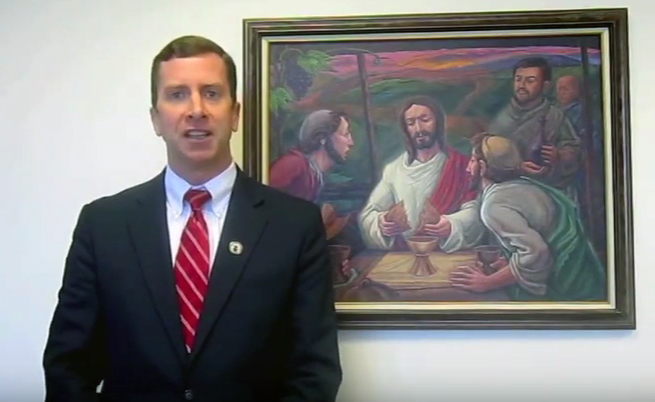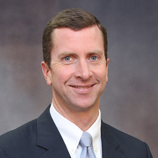
Matt Manion has left the Catholic Leadership Institute, based in Wayne, and assumes leadership of the Center for Church Management at the Villanova University School of Business.
The Villanova University School of Business recently announced that Dr. Charles Zech, a professor of economics, has stepped down from his role as the faculty director for the Center for Church Management (CCM) and Master’s of Science in Church Management (MSCM) Program.

Charles Zech
Zech, who founded the center in 2004 as the first program of its kind in the nation, will remain at Villanova’s School of Business and assist on the transition.
He will be succeeded by Matthew Manion, a former president and CEO and most recently a senior fellow at the Wayne-based Catholic Leadership Institute (CLI).
In his new role, Manion has also been appointed as a professor of practice at the Villanova Business School’s Management and Operations Department. In leading the CCM he will work in partnership with the CCM director, Jim Gallo.
The CLI was founded in 1991 by former business executive Timothy Flanagan working with the late Father Charles Pfeffer with an original purpose of building leadership in the church among young adults. Since then it has expanded its leadership programs to include bishops, priests, religious and laity. More than 100 bishops and archbishops have participated in its programs.
While the Center for Church Management and the Catholic Leadership Institute sound similar and both are faith-centered, there are clear differences. For example the CCM, which is based at Villanova, offers a master’s program as well as a web-based certificate program in church management in conjunction with Our Sunday Visitor newspaper.
[hotblock]
The center also has a greater focus on the business side of how the church can most effectively perform its mission.
Catholic Leadership Institute, which does not grant degrees, places greater emphasis on leadership, and this includes management practices.
In short, both organizations are complementary; the CLI has emphasis on leadership, while the CCM has a focus on stewardship.

Matt Manion
Manion, who is a graduate of the University of Pennsylvania’s Wharton School and himself a graduate of Villanova’s Master’s of Science in Church Management, came to CLI in 1999 through the experience of one of its programs that he attended and was part of its dramatic growth in the almost two decades since.
Now at Villanova, “What I have experienced and seen through the master’s program is we can help people who work for the church or who want to work for the church with a combination of skills from the business school and also include courses in canon law, ecclesiology and Catholic social teaching,” he said. “While we might say evangelization and discipleship is the priority, when you look at how resources are allocated both in time and money it doesn’t always reflect that,” he said.
Looking back, Manion said, “I felt so blessed by what we were able to do at CLI. We were able to make a contribution to the development of leadership skills of a lot of bishops, priests, deacons, religious and lay leaders. I’m thrilled that CLI will continue that important mission.
“Part of what we have done at Villanova is to help these great leaders with better management of the temporal affairs. I really see this as a complement to the CLI. I hope we will continue to collaborate on some opportunities as we go along.”
PREVIOUS: Archdiocesan parishes to take up hurricane relief collection soon
NEXT: Ending DACA will only worsen immigration issues, archbishop says



Share this story